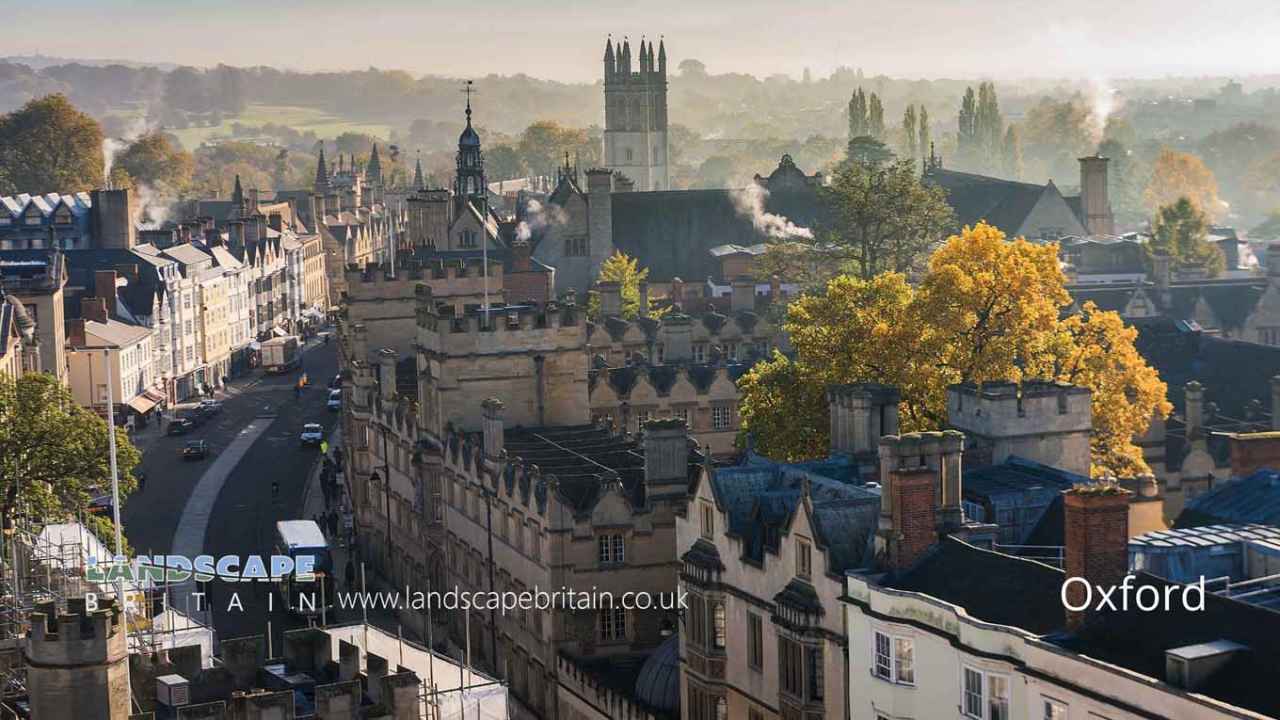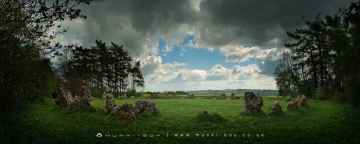Oxford is a City in the county of Oxfordshire.
Oxford, the ‘City of Dreaming Spires’, in central southern England, comprises 38 colleges and six private halls. The four oldest colleges (University College, Balliol College, Merton College, and Oriel College) are independent of each other. The 11th-century Bodleian Library is one of the oldest public libraries in Europe.
The city center is surrounded by the university’s botanic garden (with its blooming magnolia trees), Christ Church Meadow (for punting on the river) and two oxford museums: Museum of Natural History at Parks Road and Pitt Rivers Museum off St Giles.
Oxford is also home to one of England’s most notable landmarks - Christ ChurchCathedral School. It was founded by Henry II in 1180 for the education of clergy, although now it accepts both boys and girls from all walks of life.
There are great places to visit near Oxford including some great ancient sites, cities and shopping centres.
The Rollright Stones, The King Stone, The Whispering Knights, and The Kings Men are great places to visit near Oxford if you like ancient sites.
There are a number of cities near to Oxford including Oxford.
Oxford is near some unmissable shopping centres like Westgate Oxford,
Oxford History
There are some historic monuments around Oxford:
Areas of Oxford
Like most towns and cities Oxford is comprised of a number of areas, once separate villages or small towns and parishes now part of Oxford.
Many of the areas of Oxford have their own character and places of interest.
Places to see near Oxford
History of Oxford
Oxford was heavily damaged during the Norman Invasion of 1066. Following the conquest, the town was assigned to a governor, Robert D’Oyly, who ordered the construction of Oxford Castle to confirm Norman authority over the area. The castle has never been used for military purposes and its remains survive to this day. D’Oyly set up a monastic community in the castle consisting of a chapel and living quarters for monks (St George in the Castle). The community never grew large but it earned its place in history as one of Britain’s oldest places of formal education. It was there that in 1139 Geoffrey of Monmouth wrote his History of the Kings of Britain, a compilation of Arthurian legends. Additionally, there is evidence of Jews living in the city as early as 1141, and during the 12th century the Jewish community is estimated to have numbered about 80-100. The city was besieged during The Anarchy in 1142. In 1191, a city charter stated in Latin, Oxford’s prestige was enhanced by its charter granted by King Henry II, granting its citizens the same privileges and exemptions as those enjoyed by the capital of the kingdom; and various important religious houses were founded in or near the city. Oxford’s status as a liberty obtained from this period until the 19th century. A grandson of King John established Rewley Abbey for the Cistercian Order; and friars of various orders (Dominicans, Franciscans, Carmelites, Augustinians and Trinitarians) all had houses of varying importance at Oxford. Parliaments were often held in the city during the 13th century. The Provisions of Oxford were instigated by a group of barons led by Simon de Montfort; these documents are often regarded as England’s first written constitution.









